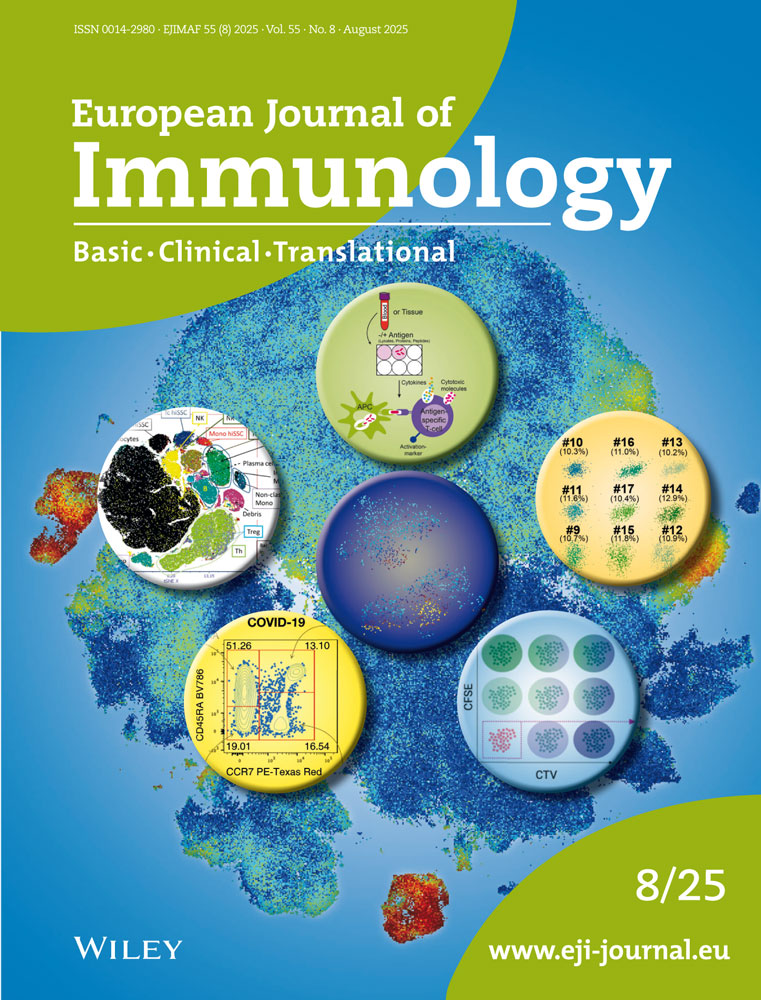Fine tuning of natural killer cell specificity and maintenance of self tolerance in MHC class I-deficient mice
Abstract
TAP1 −/−, β2-microglobulin (β2m) −/− and TAP1/β2m −/− mice all express low but quantitatively different levels of MHC class I molecules. Using these mice, we have addressed questions relating to the fine tuning of natural killer (NK) cell specificity and maintenance of self tolerance in the NK cell system. NK cells from B6 wild-type mice killed target cells from TAP1 −/−, β2m −/− and TAP1/β2m −/− mice in vivo and rejected bone marrow grafts from the same mice in vivo at equivalent levels. NK cells from TAP1 −/−, β2m −/− mice did not kill target cells or reject bone marrow grafts from TAP1/β2m −/− mice. NK cells in all MHC class I-deficient mice were tolerant to autologous MHC class I-deficient cells, as revealed by in vitro cytotoxicity assays using NK cell effectors activated with the interferon-inducing agent Tilorone, or by in vivo bone marrow graft experiments. However, the self-tolerant state of MHC class I-deficient NK cells was broken by in vitro stimulation with IL-2 for 4 days. Under these conditions, NK cells from the MHC class I-deficient mice killed autologous MHC class I-deficient cells while MHC class I-positive targets were spared. The C-type lectin inhibitory receptor Ly49C has a specificity for H-2Kb and is expressed on a subset of NK1.1+ cells in B6 mice. Wild-type and all MHC class I-deficient mice had similar numbers of Ly49C-positive NK1.1+ cells. However, Ly49C expression was markedly down-regulated on NK1.1+ cells from B6 mice, as compared to TAP1 −/−, β2m −/− and TAP1/β2m −/− mice. In vitro stimulation of NK cells with IL-2 for 4 days did not significantly change this pattern. The present results are discussed in relation to the role of MHC class I molecules and Ly49 receptors in shaping the NK cell repertoire and raise new questions about maintenance of self tolerance in the NK cell system.




